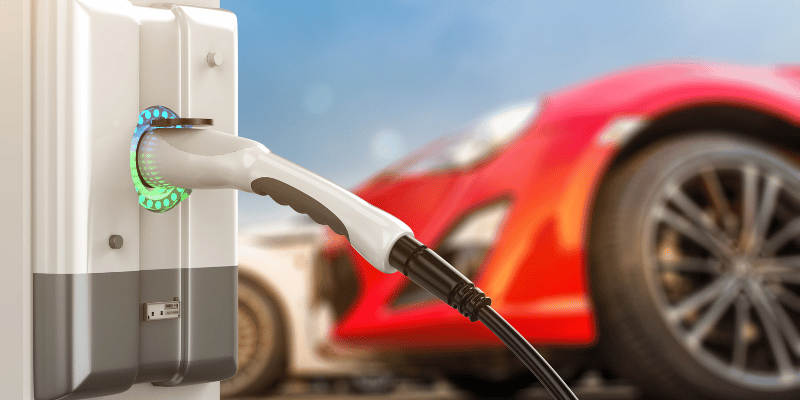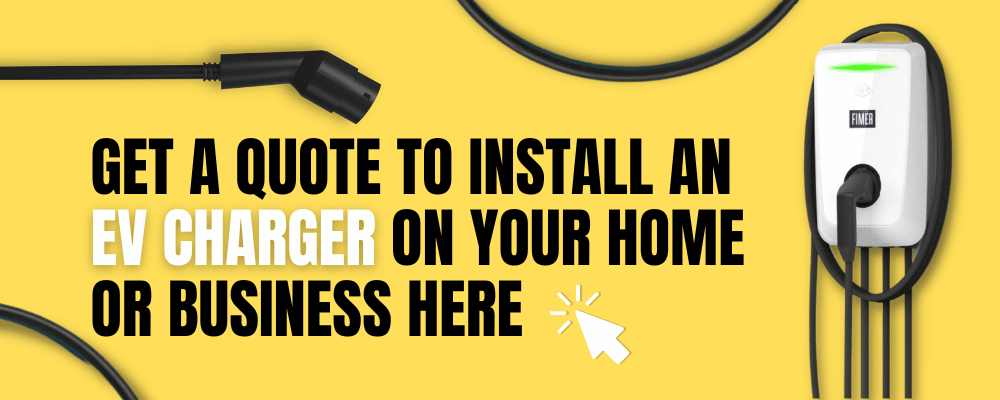Purchasing a vehicle has always been fraught with countless options. Should you buy a manual or automatic? Petrol or diesel? SUV, sedan, hatchback, coupe, ute, minivan, or sport? What type of interior and what additional tech upgrades? New or used? The options and possibilities are endless…and the addition of electric vehicles to the market has only added to the head-scratching!
So if you’re looking to purchase your first car, upgrade, or make the switch, we will cover some areas that will aid you in your decision as to whether the next vehicle to grace your driveway should be electric.
For those interested in reducing their carbon footprint beyond the road, Energy Matters offers valuable insights into renewable energy solutions, including solar power for homes and businesses. You can gain a deeper understanding of how solar energy aligns with your sustainability goals by getting free solar quotes online from Energy Matters.
Money, money, money
Money, as they say, makes the world go ‘round – and it certainly is a major factor when considering what vehicle to purchase. There are many factors to consider when looking at the new car market and your budget, and the future of EVs in Australia should be close to the top of your list of budget considerations.
It’s no secret that Australia is moving towards electrification. This means that fossil fuels will go the way of the dinosaurs (from whence they came!) and make way for renewable energy. Various factors have seen the price of both petrol and diesel cars skyrocket. As renewables replace gas and oil, filling up your petrol or diesel car will become unviable. Australia’s investment in renewable energy, and the ability to generate electricity yourself via solar PV systems, will mean that ‘filling up’ your EV will be cheaper than filling up your petrol or diesel car.

This is incredibly important to consider. EVs are notoriously more expensive than their petrol-guzzling equivalents, but the cost to run can be considerably cheaper. The average newly purchased Australian car sits at around $40,916, according to Canstar Blue, with EVs priced at around $50,000 on average. Australian petrol cars will cost around $2,160 to fill up per year if travelling 15,000km. The average EV will cost around $500 in electricity to charge per year. These are huge savings! Many states also have reduced registration fees, with ACT even providing 2 years of free rego for new EVs!
Electrification may also mean that your house could soon be partially powered by your EV. The electric landscape of Australia is quickly shifting, and you want to ensure that your investment will be future-proof.
Are you ready to convert your next car to an electric vehicle (EV)? Book a test drive now in one of the newest electric vehicles in your location!
Is it worth buying an electric car in Australia?
In the pursuit of a sustainable future, Australia has made significant strides in establishing a robust, EV market through infrastructure and supportive policies. When considering buying an electric car in Australia, several factors make it a worthwhile investment:
Environmental benefits
Electric vehicles produce zero tailpipe emissions, making them a key solution to combat climate change. By choosing an EV, you contribute to cleaner air and a reduction in greenhouse gas emissions, paving the way for a healthier planet.
Lower running costs
You may wonder if buying an electric car in Australia is financially prudent. While electric cars may have a bit higher upfront cost, they offer substantial long-term savings. With lower maintenance costs, reduced fuel expenses, and potential tax incentives or rebates, electric vehicles prove to be more cost-effective over time.
Government incentives
The Australian government recognises the importance of transitioning to electric mobility and has implemented various incentives. Grants, subsidies, reduced registration fees, and ongoing charging infrastructure development make owning an electric car more accessible and affordable.
Expanding charging network
One of the primary concerns when considering electric cars for sale is the availability of charging infrastructure. However, Australia’s charging network has been expanding rapidly. With an increasing number of public charging stations and the integration of workplace and destination charging, recharging your EV has become more affordable and convenient than ever before.
Will electric cars last 10 years?
As you contemplate whether to buy an electric car in Australia, the longevity of electric vehicles is a valid consideration beyond the purchase price. However, several factors ensure the durability of most electric cars for 10 years and beyond:
Battery technology improvements
Battery technology has undergone significant advancements, enhancing the lifespan and performance of new models of electric vehicle batteries. Modern EVs are equipped with advanced lithium-ion batteries that can endure numerous charge-discharge cycles, ensuring longevity and reliability.
Warranty coverage
To instill confidence in potential electric motor buyers, most electric vehicles come with warranties covering the battery pack and related components for a range of 8 to 10 years. This warranty coverage underscores the manufacturer’s commitment to the longevity of their electric cars.
Resale value
As the demand for electric vehicles continues to rise, their resale price and value remain strong. Factors such as declining battery production costs and increasing environmental awareness contribute to the sustained market value of electric cars. Therefore, when buying an electric car in Australia, you can expect it to retain a reasonable resale price in the future.
The road less travelled – how far will my EV need to take me?
One of the most common barriers for would-be EV owners is range. EV drivers in most European and Asian countries do not face the same challenges that many Aussies do. A drive to visit your in-laws could mean crossing half a state and hundreds of kilometres. Australia has always had unique challenges and range anxiety is but a new one. A limited supply of charging stations had previously been one of the biggest gripes and had seen many stranded mid-destination. But the early teething struggles of EVs have slowly been weaned out and range anxiety is mostly no-more..

Not only has the range of many new EVs increased, but most Aussies have never had to worry about range in the first place. Did you know that the average Australian travels 36km in one day? Considering that the lower-range EVs will see you travel around 300km on a full charge, and the higher range will get you anywhere between 500 and 800km, the driving range should not be a concern – and a full charge should see you driving for a week or more. When travelling across states, or even the country, there are countless charging options available, with many located in motels, hotels, bars, and shopping centres.
Timing your charge with a lunch or dinner stop will ensure that you have enough juice to get you to your destination. At home, plugging in your EV at night will give you peace of mind that you always have a ‘full tank’ in the morning for those that travel many km during the day.
Should I wait for better technology?
Have you bought a new mobile phone only to find that 6 months later a newer and technology-packed upgrade has been released? If only you had waited! Technology advances are usually in leaps and bounds and ensuring that your expensive product remains relevant for as long as possible is paramount.
The early adopters of solar PV benefitted from huge feed-in tariffs. Their systems were expensive and very, very small – but those feed-in tariffs meant that the system was paid off quickly and that their bills were in the negative for many, many years. Current solar systems are cheaper and larger. They benefit from massive technological advances and long warranties. The feed-in tariff for solar across the country is remarkably less, with many seeing very little in the way of credit on their bills. But most households with solar now do not need to lean on the tariffs to reap the benefits. With many working from home post-covid, and electrification seeing gas appliances replaced with more energy-efficient electric alternatives, the benefits of solar can be seen immediately.
Imagine the convenience of having your own charging station, allowing you to power up your EV whenever it’s convenient for you. You can contribute to a cleaner environment and combat climate change by installing an EV charger at your home or business. Energy Matters‘ trusted local installers are ready to provide you with a personalised quote tailored to your specific needs.
Don’t wait any longer; request your quote today and be part of the EV charging revolution!
Electric Vehicles have been available for over a decade, with Tesla catapulting EVs into popularity in 2012. The early adopters of EVs benefitted from very cheap electricity, which in turn meant running costs and charging their electric motors were much, much cheaper than petrol or diesel. But battery technology, and the quality of the vehicles, were lacking. Current EVs benefit from years of advanced research into battery technology. Newer makes and models can travel further, charge faster, and have greater onboard technology.
Australians are on the precipice of a major shift in the electrical landscape, which makes purchasing an EV now a fantastic opportunity. Federal and state tax breaks and incentives for EVs mean that your dollar goes further. Buying an EV right now will see you with the best of both worlds; cheaper to buy and technology that will not become obsolete any time soon.
The verdict
As with all major financial decisions, many factors should be taken into consideration when buying a new car. EVs were once thought of as a fad and something that would be nothing more than a blip on the pages of history, but they have proven that they’re not only here to stay but have benefits that supersede their fossil fuel counterparts. With some car manufacturers choosing to only release EVs in the future, the decision will soon be made for you. But, until then, consider the environmental, financial, future-proof, and practical aspects of all vehicles you add to your list to ponder.
If you have yet to test-drive an EV, why not book a test-drive today?
Our professional solar installers in Melbourne will assess and determine your energy needs. We customise a solar panel system in Melbourne to fit the roof size of your property, ensuring you receive the most suitable solar panel system for your Melbourne home, meeting to property’s energy requirements.















































